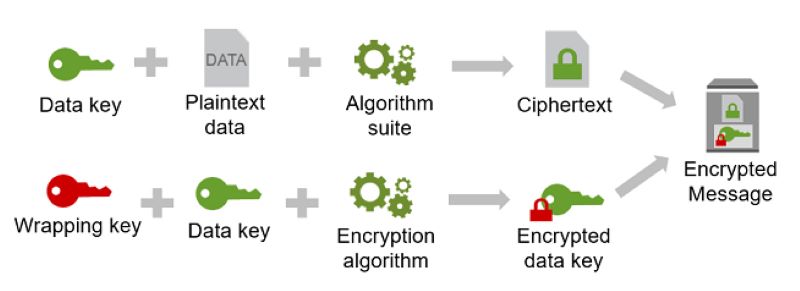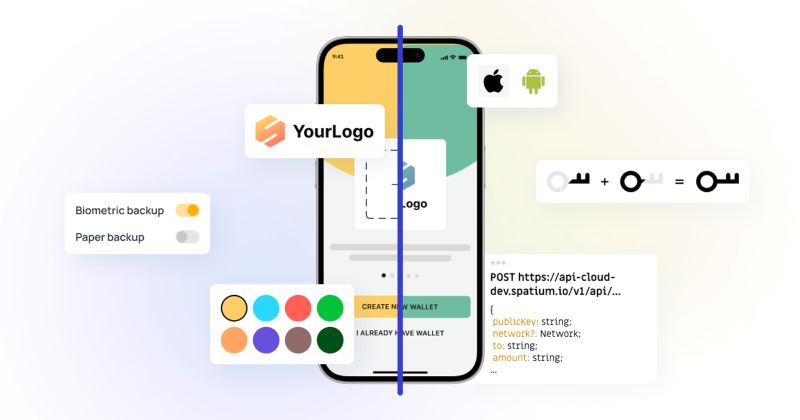Ever wondered what is SDK in crypto? It’s the wizard’s wand for building in blockchain land! Let’s crack the code on software development kits, or SDKs, in the crypto world. They’re not just tools; they’re your launchpad to creating something stellar in the digital currency universe. Stick with me as we dive into the meat of SDKs – their definition, inner workings, and how they empower the apps and platforms you love. Get ready for a beginner-friendly journey to mastering the magic behind the scenes. Your crypto wizardry starts now!
Demystifying the Basics: The Definition and Function of SDK in Blockchain
Understanding Crypto SDKs: A Beginner’s Guide
Ever wonder how crypto apps are built? They’re crafted using special tools called SDKs. Let’s break down what a SDK is. SDK stands for Software Development Kit. It’s like a toolbox for building software, including crypto programs. SDKs have code, guides, and tools within them. They help coders create apps quickly and with less effort.
Coders use SDKs to make sure their apps work well. Think about putting together a model plane. Wouldn’t a kit with all the parts and instructions be helpful? SDKs do that for software.
One common SDK is for Android phones. It lets coders build apps just for Android users. In crypto, SDKs let you do various things. You can make wallets, where people keep their digital coins. You can also develop complex programs that run on the blockchain.
Exploring SDK Functionality in Blockchain Systems
Now, let’s dive into what makes these SDKs tick in blockchain. Imagine blockchain as a big ledger. It records all crypto transactions. SDKs in blockchain make sure apps can talk to this ledger. They’re packed with features for this purpose.
What sort of features, you might ask? For one, there’s code that links apps to the blockchain network. Plus, tools to test out a new app. This is vital when dealing with people’s crypto money.
Coders may also find templates in an SDK. These ready-made chunks of code save heaps of time. Templates are like puzzle pieces that fit right into an app. Besides, coders often need to set up smart contracts. These are agreements that run by themselves on blockchain. With SDKs, programming smart contracts becomes much simpler.
Kids learn from books, coders learn from SDK documentation. It’s filled with how-tos and examples. This way, anyone can follow along and build something cool.
What about security? That’s super important in crypto. Luckily, SDKs have tools to make apps secure. Think of this as putting a strong lock on your digital cash.
So, that’s a peek into the world of SDKs in the crypto universe. In simple terms, SDKs are packed with all you need to create safe, efficient blockchain apps. Whether you’re new to coding or an expert, these kits can help you bring your crypto ideas to life. They’re the unsung heroes behind every app on your phone or computer. With SDKs, the possibilities in crypto are endless. And that, my friends, is truly magical.
The Builder’s Tools: Types and Components of Cryptocurrency SDKs
Categories of SDKs for Cryptocurrency Application Development
Let’s dive into the toolbox of crypto builders. You might ask, “What is an SDK?” Well, think of an SDK as a magical chest filled with tools tailored for crafting digital treasure. It’s a set of tools that lets developers create apps more easily, especially for trading, tracking, or using digital coins and making smart deals.
Now, you might wonder, “What are the types of SDK for cryptocurrency?” There are many kinds, like ones made just for Bitcoin or Ethereum. Others are for mobile apps or work across many platforms. Each has special tools that help programmers speak the blockchain language.
Core SDK Components for Digital Assets and Smart Contracts
A crypto SDK explained simply has to include its main parts. It contains a crypto wallet SDK, which is like a safe where you keep your digital coins. Then there’s the software for smart contracts. They’re like robot promises that do what you tell them when conditions are right. Also, we have blockchain coding standards, which are rules that keep everyone on the same track.
Developing with crypto SDKs means using these parts to build dApps, or decentralized apps. These apps give power to their users, not just one boss. But, the joy of an SDK doesn’t end there. It brings benefits like making development faster, cutting down on mistakes, and letting devs focus on cool features instead of boring tech issues.
Can you see the awesome power of SDKs in blockchain tech now? They’re not just tools; they’re keys that unlock the full potential of digital magic.
The Developer’s Compass: Integrating and Utilizing SDKs in Crypto Projects
Navigating SDK Integration in Crypto Apps
Think of a crypto SDK like a box of building blocks. Each block is a tool to make an app. Now, what is an SDK in crypto? It’s a software kit, full of parts to build crypto software. It has everything you need to make a crypto app work well.
Why use an SDK? It makes the tough parts of coding simpler. You focus on the big ideas. The kit takes care of details. That’s the magic of SDKs. You save time and avoid big mistakes.
To start, pick the SDK that fits your project. Let’s say you are making a crypto wallet. You will need a crypto wallet SDK. It has special tools for this job. With it, you can make a wallet fast and keep it safe.
Now, how do you add the SDK to your app? First, you read the guide. It shows how to plug the SDK into your code. This can be tricky but, the guide helps a lot. Next, you test the app. Make sure every part of the SDK works right in your app. If you find a bug, fix it.
SDK Support and Resources for Blockchain Developers
What if you get stuck? Don’t worry. Good SDKs come with help. You get resources to make it easy. You might find videos, FAQs, or even a chat for quick answers.
There are many kinds of SDKs out there. You have your pick for any blockchain task. You might need one for smart contract creation. Or maybe you need to build on Ethereum. There is an SDK for that too.
For each task, the right SDK is key. It must match what you want to do. If you’re looking to deal in DeFi, you’ll want a DeFi SDK essentials kit. It focuses on apps for decentralized finance. Such a kit might help with trades or loans without a bank.
Some SDKs let you work on many kinds of phones. We call them mobile blockchain SDKs. Others let you write code for more than one platform at once. We call these cross-platform SDKs in cryptocurrency.
Now, what about support? Say you are using a blockchain software development kit. This kit is like a set of tools. Sometimes, a tool breaks or gets lost. Support is like a handy tool shop. It fixes your broken ones and finds ones you’ve lost.
Resources are like maps to guide you. They can be samples, code bits, or whole projects. They show the way. They make your coding trip smoother. It’s always smart to use these maps.
Don’t forget about the blockchain developer resources you can find online. Forums, docs, and articles are always there to help. They can give you tips or answer tricky questions. Use these, and your crypto SDK setup will turn out strong.
To wrap it up, SDKs are there to help you build your crypto project. They are the guiding compass, leading you to make amazing apps. The right SDK saves time, eases your work, and helps you stay on track. Use it well, and watch your project thrive.
Beyond the Code: Enhancing Crypto Platforms with Advanced SDK Features
Deploying Smart Contracts SDK Use Cases
Imagine creating your own rules for a digital game. Only, this game can involve real-world value, like money or property. That is what a smart contract does on blockchain. Now think of an SDK. An SDK is like a box filled with building blocks. Blocks that help you set up these rules – fast and reliable. It creates smart contracts without you typing a lot of code.
One main use of these kits is making new digital coins. They allow you to say how these coins work and how people can trade them. They also let you create voting systems where everyone’s vote is safe and counts. Another great use is in games. You can make items that players can collect, trade, or sell.
With crypto, an SDK gives you the tools to build all this on the blockchain. It has bits of code, programming tools, and guides to help. This means you can create or add to your digital space with ease. These kits help to make the crypto world grow by letting more people build with confidence.
Blockchain Development Tools: Choosing the Right SDK for Your Project
When starting a crypto project, picking the right toolkit is key. Think of it as choosing the right ingredients for a meal. Each SDK has different powers and uses. Some let you work with many blockchains, not just one; this is big when you want to reach more people.
You might want an SDK that works on phones or one that makes great blockchain games. SDKs for smart contracts are special, they make sure rules in your digital world are followed. Some SDKs focus on money, like the ones you use for DeFi, which stands for Decentralized Finance. DeFi is like your bank, but on blockchain.
Knowing what you need for your project helps you choose. Want to build on Ethereum? There’s an SDK for that. Need Bitcoin tools? You’ll find SDKs for those, too. If you’re new, look for kits that guide you step-by-step. Are you a pro? Grab an SDK with more powerful features.
Before you pick, read about what each SDK offers. Share ideas with other builders. Test different SDKs if you can. This helps you see if they fit what you’re making. Remember, an SDK is more than code. It can be a partner in bringing your crypto dreams to life.
All in all, SDKs in crypto are game-changers. They’re the secret sauce behind many apps and services in the domain. Crypto and blockchain are still new. Using the right SDK will help you play a part in shaping this tech frontier.
In this post, we dug into SDKs for blockchain and how they power crypto projects. I broke down the basics of crypto SDKs and explained their main functions. We looked at the different types of SDKs you can use for building cool apps that use digital money and smart contracts. Then, I showed you how to put these SDKs into your own projects and where to find help when you need it. Lastly, we checked out advanced SDK features that make crypto platforms even better.
My final thoughts? Getting the right SDK matters a lot. It’s like picking the best tools for a tough job. Choose well, and you can build something amazing in the world of crypto. Now, go out there and create something awesome!
Q&A :
What is an SDK in the context of cryptocurrency?
An SDK, or Software Development Kit, is a set of tools and libraries designed for creating applications within a specific framework or platform. In the realm of cryptocurrency, an SDK often refers to a collection of tools that enable developers to build blockchain-related applications with ease. This can include libraries for handling transactions, interfacing with different blockchain protocols, or integrating digital wallets.
How does an SDK enhance crypto application development?
An SDK simplifies and accelerates the development process of crypto applications by providing pre-built components and a standardized set of programming tools. With an SDK, developers can focus on creating unique features for their apps rather than dealing with the intricacies of the blockchain technology from scratch. It ensures consistency, reliability, and compatibility with the underlying crypto platform or blockchain.
Are there different types of SDKs available for various cryptocurrencies?
Yes, there are different types of SDKs tailored for specific cryptocurrencies or blockchain frameworks. For instance, Bitcoin, Ethereum, and other blockchain technologies have their own unique SDKs, which are optimized for their particular systems, protocols, and smart contract languages. Developers must choose an SDK that aligns with their project requirements and the blockchain technology they intend to build on.
What benefits do developers gain from using a crypto SDK?
Developers gain numerous benefits from using a crypto SDK, such as a reduction in development time, access to high-level programming interfaces, and integration with existing blockchain networks. Additionally, SDKs often come with robust security features, which are crucial for building trustworthy and reliable crypto applications that handle sensitive information and financial transactions.
Can non-programmers use SDKs to interact with cryptocurrency technologies?
While SDKs are primarily intended for developers with programming knowledge, there are tools and platforms that offer user-friendly interfaces based on these SDKs that can be used by non-programmers. These interfaces can range from simple wallet applications to comprehensive platforms for managing crypto assets. However, building complex applications or custom integrations typically requires a developer skilled in using the SDK’s programming language and blockchain technology.




